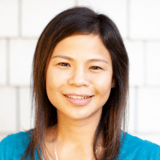Summary
A multidisciplinary research team needs a well-crafted framework to guide their behavior, nurture their growth, and cultivate their culture. Otherwise, they feel stuck in growth and unmotivated to collaborate. Through a participatory design, the authors established a three-pillar excellence framework at Uber. First, it focuses on the research impact on product experimentation, products, roadmaps, and the company/organization. Second, it promotes creative research methods that successfully prioritize work, produce and scale rigorous insights, and empower other researchers. Third, it recognizes true partnership cross functional teams and beyond their own product area. This framework worked well at Uber for years, and recently was applied by the authors in Booking.com and Course Hero with some modifications. As this starter framework, they hope all researchers and research leaders can build their own ones based on their situations.
Key Insights
-
•
A three-part research framework focused on impact, methods, and partnership can guide teams in fast-paced, changing environments.
-
•
Prioritizing research projects using a rubric including customer impact, business impact, and collaboration quality helps clarify trade-offs and resource allocation.
-
•
An impact matrix balancing one-time, roadmap, experiment, and ongoing research types ensures a balanced and sustainable research portfolio.
-
•
Simple, scalable research methods like mobile intercept surveys can provide reliable, valid data across languages and contexts.
-
•
Moving research involvement earlier in the product development process accelerates decision-making and avoids costly mistakes.
-
•
Cross-functional partnerships with data science, engineering, and product teams are crucial for integrating research effectively and efficiently.
-
•
Recognition programs like monthly research excellence awards help sustain team motivation and highlight success.
-
•
Ethics should be embedded as a core value both in research operations and project prioritization.
-
•
Entering net new research domains requires focusing first on impact definition, then methods suited for subjective and complex human factors.
-
•
Balancing business and customer impact often reveals aligned interests rather than conflicts, as in the example of early trip cancellations improving user control.
Notable Quotes
"We developed this research framework during our time at Uber together with an extended leadership team as the team grew from 30 to 100."
"To have a strategy you need to think about how to prioritize, because you can’t do all the research requests that come in."
"Being simple is extremely complex. Adding complexity is easy, but simplicity requires discipline and focus."
"Our intercept survey is more reliable than NPS and works well even for illiterate drivers because it uses emojis as response options."
"Moving research upstream in the product process helps solve problems faster and save millions of dollars."
"We always recommend starting with one method and adding another only when absolutely needed."
"Ethics is a very important part of any user research team and should be a foundational part of how you evaluate work."
"If you’re the first researcher in a big org or new domain, focus on defining impact before deciding methodology and partnerships."
"Sometimes business and user interests seem opposed, but thoughtful research reveals ways to align them, like early trip cancellations."
"Recognition programs help create a happy, inclusive, and high-performing global team focused on impact."
Or choose a question:
















More Videos

"If we haven’t defined and branded ourselves, others will—and others could be wrong."
Molly FargotsteinMultipurpose Communication & UX Research Marketing
September 12, 2019

"Designers can only produce their best work if we understand and meet their unique motivations and reward systems."
Dave MaloufClosing Keynote: Amplify. Not Optimize.
October 24, 2019

"These tools are the most powerful symbol manipulation tools ever created, like spreadsheets for language."
Jorge ArangoAI as Thought Partner: How to Use LLMs to Transform Your Notes (3rd of 3 seminars)
May 3, 2024

"The future was already here. It’s just not evenly distributed."
Daniel J. RosenbergDesigning with and for Artificial Intelligence
August 11, 2022

"I help you unlearn and relearn patterns so that you can build better products."
Alexis LucioScaling Accessibility Through Design Systems
June 9, 2022

"It helps if contributing to design ops initiatives is part of people's performance reviews or career ladder criteria."
Peter BoersmaHow to Define and Maintain a DesignOps Roadmap
October 3, 2023

"Scaffolding is about hacking and doing things differently, not lowering the bar but delivering value continuously."
Ben Reason Aline Horta Majid Iqbal Fabiano LeoniMaking the system visible: The fastest path to better decisions
November 20, 2025

"AI in design can act as a creative companion, helping explore ideas and analyze past research more efficiently."
Peter Van Dijck Louis RosenfeldCoffee with Lou #4: Taking a Peek Under the Rosenbot's Hood
June 14, 2024

"Technology is a series of choices designers and technologists make, often small but impactful; we must demand better choices that work for all of us."
Taylor KlassmanShaping the Next Era of UX Research: Collaborative Forum
March 11, 2025

















